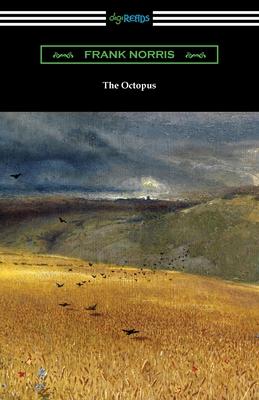Inspired by The Mussel Slough Tragedy, an 1880 dispute over land titles between California settlers and the Southern Pacific Railroad, Frank Norris' 1901 novel, "The Octopus: A California Story", is the first part in his unfinished trilogy, "The Epic of Wheat". The novel depicts the conflict between wheat farmers in the San Joaquin Valley and the Pacific and Southwestern Railroad. When the railroad company attempts to take possession of land leased to and improved by the farmers, the farmers are forced to defend themselves and their claims to the land that they rely on for their livelihood. A powerful social and political commentary, "The Octopus" focuses on how the powers of big business, in this case railroads and their unfair monopolies, are leveraged against the interests of the common man. The second volume of "The Epic of Wheat" trilogy, "The Pit", which focused on the distribution of wheat in Chicago, was published after Norris' death and the third installment, to be titled "The Wolf", which was intended to focus on the effects of famine, was never written. Epic in scope, richly detailed, and satisfyingly realistic, "The Octopus" is a testament to the tragedy often wrought by unchecked corporate power and greed. This edition is printed on premium acid-free paper.

Inspired by The Mussel Slough Tragedy, an 1880 dispute over land titles between California settlers and the Southern Pacific Railroad, Frank Norris' 1901 novel, "The Octopus: A California Story", is the first part in his unfinished trilogy, "The Epic of Wheat". The novel depicts the conflict between wheat farmers in the San Joaquin Valley and the Pacific and Southwestern Railroad. When the railroad company attempts to take possession of land leased to and improved by the farmers, the farmers are forced to defend themselves and their claims to the land that they rely on for their livelihood. A powerful social and political commentary, "The Octopus" focuses on how the powers of big business, in this case railroads and their unfair monopolies, are leveraged against the interests of the common man. The second volume of "The Epic of Wheat" trilogy, "The Pit", which focused on the distribution of wheat in Chicago, was published after Norris' death and the third installment, to be titled "The Wolf", which was intended to focus on the effects of famine, was never written. Epic in scope, richly detailed, and satisfyingly realistic, "The Octopus" is a testament to the tragedy often wrought by unchecked corporate power and greed. This edition is printed on premium acid-free paper.